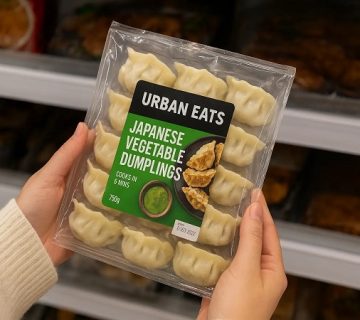The Role of Modified Mango Seed Starch in Reducing Cholesterol and Its Potential as a Fat Substitute in Food Industries
Nowadays, the increase in cardiovascular diseases caused by high cholesterol has become one of the most significant public health challenges. Diet plays a crucial role in controlling cholesterol levels. One of the innovative solutions is the use of modified plant starches to reduce the consumption of saturated fats. Among these, starch extracted from mango seeds has attracted significant attention as a fat substitute and a cholesterol-lowering agent.
This article explores the application of modified mango seed starch, its impact on blood cholesterol, and its potential as a fat substitute in the food industry.
The Importance of Controlling Blood Cholesterol
Cholesterol is a type of lipid essential for the body, but excessive levels, especially of LDL (bad cholesterol), can cause artery blockages and lead to heart attacks. According to the World Health Organization, millions of people lose their lives annually due to issues related to high cholesterol.
Lifestyle changes, especially dietary modifications, play an essential role in reducing the risk of these diseases. Reducing the consumption of saturated fats and using healthier alternatives is one of the key strategies in this regard.
Mango Seed: A Forgotten Resource with High Potential
Mango seeds, often overlooked as agricultural waste, contain a high percentage of starch. This starch, after undergoing appropriate modification processes, can offer special physical and nutritional properties that make it an ideal option for replacing fat.
Extraction of Starch from Mango Seeds
The extraction process includes the following steps:
Drying and grinding the seeds
Soaking and separating the starch
Purification through filtration
Final drying
Modified Starch
Natural starch has limitations such as low solubility and heat sensitivity. Modifying starch through methods like esterification or heat-moisture treatment increases its stability, improves viscosity, and enhances its water and fat absorption properties.
The Impact of Modified Mango Seed Starch on Reducing Blood Cholesterol
Scientific studies have shown that the consumption of resistant starches, including modified mango seed starch, can help reduce blood cholesterol levels. This effect occurs through several mechanisms:
Cholesterol Reduction Mechanisms
Increased bile acid excretion: Starch binds to bile acids in the intestine, forcing the body to use more cholesterol to regenerate bile.
Reduced cholesterol absorption: Modified starches form gel-like layers in the digestive tract, limiting the absorption of fats and cholesterol.
Increased fermentation and production of short-chain fatty acids: These acids reduce the liver's cholesterol production.
Results of Experimental Studies
Animal studies have shown that the use of modified mango seed starch results in:
Reduced total cholesterol (TC)
Reduced LDL (bad cholesterol)
Increased HDL (good cholesterol)
These results are promising for the use of this starch in human diets aimed at promoting heart health.
Mango Seed Starch as a Fat Substitute
In addition to its positive effects on health, modified mango seed starch offers unique functional properties that make it an excellent fat substitute in food products:
Key Features
Creates a creamy, smooth texture in food
Retains moisture and prevents dryness in baked products
Stable under high heat and freeze-thaw processes
Maintains or even improves the flavor characteristics of products
Applications in the Food Industry
Production of low-fat dairy products (e.g., yogurt, cream cheese)
Fat substitution in dressings and light mayonnaise
Texture enhancement in cakes, biscuits, and diet-friendly bread
Production of healthy, trans-fat-free desserts
Benefits of Using Modified Mango Seed Starch
Reduced risk of cardiovascular diseases: Through lowering blood cholesterol
Environmental sustainability: Efficient use of agricultural waste
Economic benefits: Reduced production costs compared to expensive fats
Branding of healthy food products: Attracting consumers interested in a healthy lifestyle
Challenges and Future Outlook
While initial results are promising, further research is needed in the following areas for widespread commercialization:
Optimization of the extraction and modification process at an industrial scale
Extensive human clinical trials
Assessment of the stability of products containing this starch in real market conditions
Compliance with food safety regulations and international health certifications
Conclusion
The use of modified mango seed starch as a fat substitute is a smart strategy for improving public health and supporting sustainable development in the food industry. This approach not only reduces blood cholesterol but also produces low-fat, healthy food products that align with the growing demands of today’s market.
Given the research findings and numerous benefits, the future for using this starch in the food industry looks promising.
To enhance the quality of food products and ensure consumer health, adherence to the SFBB (Safe Food Better Business) standard is of particular importance. This standard ensures that the production and distribution processes of food products are managed according to international food safety standards.
Additionally, to build further trust in the food business, registering for the SFBBCERT is mandatory. This certification assures customers that the offered products are health- and legally approved.





No comment